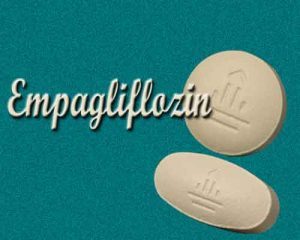- Home
- Editorial
- News
- Practice Guidelines
- Anesthesiology Guidelines
- Cancer Guidelines
- Cardiac Sciences Guidelines
- Critical Care Guidelines
- Dentistry Guidelines
- Dermatology Guidelines
- Diabetes and Endo Guidelines
- Diagnostics Guidelines
- ENT Guidelines
- Featured Practice Guidelines
- Gastroenterology Guidelines
- Geriatrics Guidelines
- Medicine Guidelines
- Nephrology Guidelines
- Neurosciences Guidelines
- Obs and Gynae Guidelines
- Ophthalmology Guidelines
- Orthopaedics Guidelines
- Paediatrics Guidelines
- Psychiatry Guidelines
- Pulmonology Guidelines
- Radiology Guidelines
- Surgery Guidelines
- Urology Guidelines
Empagliflozin (zardiance) good in Diabetes with CVD and CKD

New analyses of the landmark EMPA-REG OUTCOME®trial showed that Empagliflozin improved clinical outcomes and reduced mortality in vulnerable patients with type 2 diabetes, established cardiovascular disease and chronic kidney disease. Empagliflozin, a sodium glucose cotransporter 2 inhibitor, reduced cardiovascular morbidity and mortality in patients with type 2 diabetes and established cardiovascular disease in the EMPA-REG OUTCOME® trial. Urinary glucose excretion with empagliflozin decreases with declining renal function, resulting in less potency for glucose lowering in patients with kidney disease
Empagliflozin reduced the risk of cardiovascular death in patients with type 2 diabetes and established cardiovascular (CV) disease*, independent of blood sugar control at the start of the study.1 A reduction in cardiovascular death was also seen when Jardiance® was added to common first and second-line diabetes medications, such as metformin or sulphonylurea.2,3 These results from post-hoc analyses were presented by Boehringer Ingelheim and Eli Lilly and Company (NYSE:LLY) at the 53rd Annual Meeting of the European Association for the Study of Diabetes (EASD) in Lisbon, Portugal.
“Now that we have a new option for reducing the risk of cardiovascular death among people with type 2 diabetes, we are striving to better understand if there are differences in how patients can benefit,” said Prof. Silvio Inzucchi, Section of Endocrinology, Yale School of Medicine, New Haven, USA, who presented the data today. “These new analyses of the EMPA-REG OUTCOME® trial showed empagliflozin was effective in reducing the risk of cardiovascular death in patients with type 2 diabetes and established cardiovascular disease, no matter what the blood sugar levels at the start of the study were or if empagliflozin was added to commonly used oral blood sugar lowering treatments.”
In all four blood sugar level groups at study start (HbA1c levels of <7.0%, 7.0% to <8.0%, 8.0% to <9.0%), patients receiving Jardiance³9.0% and ® demonstrated a reduction in the risk of cardiovascular death compared with placebo. This was consistent with the risk reduction seen in the overall trial population* and seen irrespective of whether blood sugar control was improved following introduction of the study treatment (as measured by a decrease in HbA1c level of ≥ 0.5% at week 12).1
Additional post-hoc analyses showed that when Empagliflozin was added to metformin or sulphonylurea, the reduction of cardiovascular death compared to placebo was consistent with the overall trial population*. These analyses also showed the proportion of patients with hypoglycaemic adverse events were similar between the placebo and Empagliflozin groups in the EMPA-REG OUTCOME trial.
The 7,020-patient EMPA-REG OUTCOME® trial results, first published in the New England Journal of Medicine reduced the relative risk of cardiovascular death by 38 percent compared to placebo in patients with type 2 diabetes and established cardiovascular disease* on top of standard of care (including glucose-lowering agents and cardiovascular drugs). The overall safety profile of Empagliflozin in 2015, had shown that Empagliflozin was consistent with that of previous clinical trials and current label information.
“Cardiovascular disease is the primary cause of death in people with type 2 diabetes," said David Kendall, M.D., Distinguished Medical Fellow, Lilly Diabetes. “The results presented at EASD provide further evidence of the benefit empagliflozin can provide to patients with different background blood sugar control.”
For more details click on the link :
http://circ.ahajournals.org/content/early/2017/09/13/CIRCULATIONAHA.117.028268.short?rss=1

Disclaimer: This site is primarily intended for healthcare professionals. Any content/information on this website does not replace the advice of medical and/or health professionals and should not be construed as medical/diagnostic advice/endorsement or prescription. Use of this site is subject to our terms of use, privacy policy, advertisement policy. © 2020 Minerva Medical Treatment Pvt Ltd